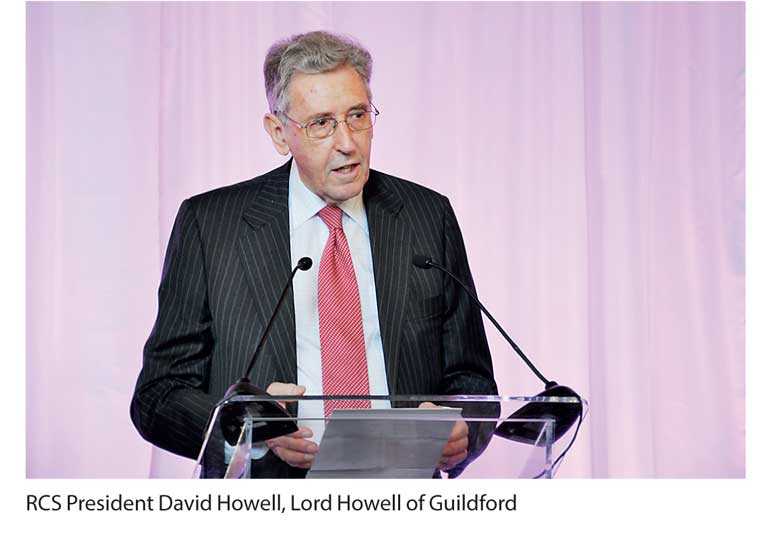Monday Feb 23, 2026
Monday Feb 23, 2026
Wednesday, 2 May 2018 00:00 - - {{hitsCtrl.values.hits}}
 Royal Commonwealth Society (RCS) President David Howell (Lord Howell of Guildford), making his observations of CHOGM 2018, in the RCS, CHOGM 2018 Report states that this time’s Commonwealth of Heads of Meeting (CHOGM) was a sharp change from past decades as far as Britain is concerned.
Royal Commonwealth Society (RCS) President David Howell (Lord Howell of Guildford), making his observations of CHOGM 2018, in the RCS, CHOGM 2018 Report states that this time’s Commonwealth of Heads of Meeting (CHOGM) was a sharp change from past decades as far as Britain is concerned.
“CHOGMs have previously been a fairly low priority for both British Government and media. But this time it is a summit with a difference,” he states.
“The immediate reason for this remarkable change of gear is obvious; Brexit has swung Government attention onto the search for consumer markets and fast-growing economies for the future and the Commonwealth network, among others offers both these as well as gateways to even bigger ones.”
“The search is on for new trade and investment opportunities, especially in the broad services sector, which accounts now for no less than 80% of the UK’s national output,” he adds.
In the Report he has spelt out the task for the Commonwealth Chair-in-Office, stating that it falls into four compartments:
1. To strengthen the existing intensive connectivity between peoples and interests at all levels throughout the whole commonwealth network. The stronger the links and affirmatives between all parts of civil society, the more this unity will influence governments to find ways of closet cooperation and maximum encouragement to flows of trade capitol and people between member states. This could be seen as a kind of “trickle-up” process with the grassroots networks driving governments increasingly together.
2. To be both the champion of small states – of which two-thirds of the Commonwealth membership consists – and the architect of closer alliances with the larger ones with India by far, the largest of all.
3. To open as wide as possible, for opportunities for Intra Commonwealth trade and investment. The big added value benefits of operating in a common business culture, backed by similar legal and commercial patterns, similar accounting procedures and above all, similar working language, ensure that these opportunities maximise the Commonwealth advantage in an age of expanding trade in data transmissions and knowledge and information products.
4. To exchange by example although not by haranguing, the ever wider adoption of values and freedoms supporting, human rights, gender equality, strict adherence to the rule of law and tolerance of minorities, as embodied in the Commonwealth Charter.
Howell states that progress on all these fronts promise big dividends for all members of the Commonwealth and indeed for Britain itself as it finds a new role outside the European Union structures and new outlets for its soft power deployment.
He opines that from “shared values comes trust, and from trust comes good business and sound investment- and from this comes prosperity.”
(C.I.)